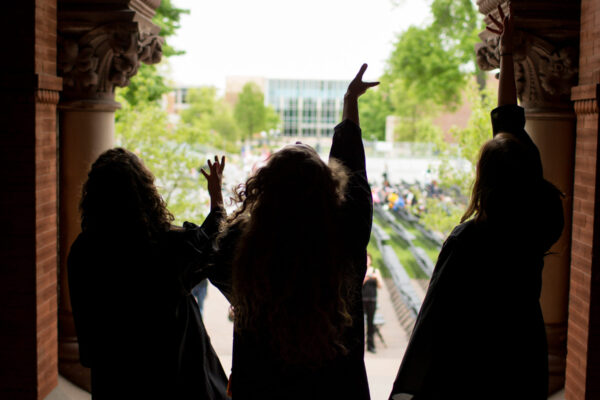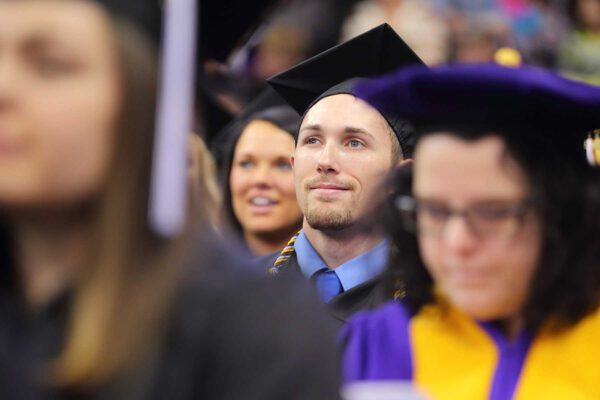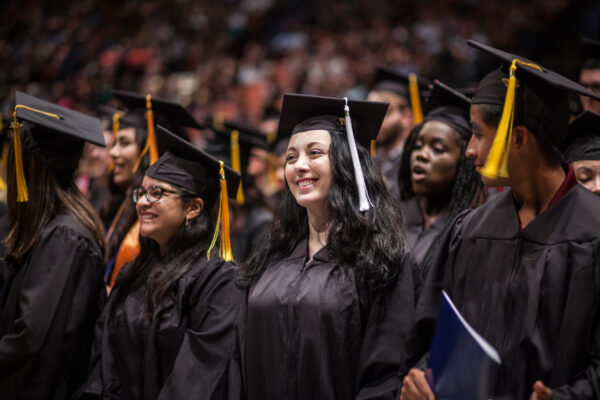By Robert L. Carothers
In 2015, I joined the board of College Unbound (CU) after stepping down from serving as the president at the University of Rhode Island for 18 years. I did so because Dennis Littky had a vision of creating a college that would serve marginalized people who had once started college before life got in the way of finishing. He would do it through a unique curriculum and pedagogy that put students in the driver’s seat. Most of the students came thinking of themselves as having failed, but Littky, our provost Adam Bush, and the faculty at CU taught them to reframe failure and to see that their lives had been about learning, even if they could not see it. Now they would begin a new phase of that life of learning in College Unbound.
A word often heard around College Unbound is passion. As the students create their learning plan, we ask them to find their passion, to find who they want to be and what mission they have for themselves, their families, and their communities.
That passion is infectious, and I caught it too. I became the chair of the board of trustees, and as we started down the road to regional accreditation, I joined the staff as executive vice president. I did so in part because the learning experience at College Unbound included many of the changes I tried to lead as president at two universities and as chancellor of the state universities in Minnesota. I recognized that I had but limited success within traditional institutions, but at CU, things I had dreamed of were happening before my eyes, fueled by passion.
At College Unbound, the relationships between students and faculty and staff are intimate. We are purposefully changing lives, not just preparing our students for work and careers. The students themselves, organized in cohorts of 10 to 12, also teach their colleagues, but equally as important, they support each other. The group dynamics are powerful, as if each has been waiting for years to tell others what life had taught them. Now those stories are informed by their professors, by readings, by listening to visitors and speakers, and by writing. The intimacy in these cohorts is enhanced because we feed them each evening they are together—in effect, we break bread together, all of us. And College Unbound supports them with childcare for those who need time away from parenting to concentrate on their academic work.
CU students eventually find a project to which they bring their passion. They frame it in partnership with their lab faculty (think: advisors who support the whole person) and their cohort members. Together, they establish a learning plan and also identify and recruit a learning network. Faculty members offer courses in support of the learning plan so students can connect theory with practice.
At the end of each eight-week term, the students hold an exhibition for faculty, staff, and community members who are part of the learning network to hear what the students have accomplished and learned during the term. The results are often amazing, sometimes as if they are presenting at graduate school seminars. These sessions help build confidence, and from that, increased competence. I love it!
The road to accreditation has been extremely important to our development as a college.
The New England Commission of Higher Education (NECHE) standards, which seemed at first to contain roadblocks to a new college gaining accreditation, instead drove us toward real institutional self-examination. We learned that meeting those nine standards would move us from a program to a college. With this process came a sense that NECHE wanted us to succeed. At CU, we understood their challenge in considering a new, very different college while other small schools in New England were closing.
I have been through many accreditation self-studies and visiting teams over my career, but never one for an institution created out of whole cloth. When we learned we had been granted candidacy status, there was a celebration among the whole College Unbound community and a passion for doing whatever we needed to do to move to the next stage. And we are still a college unbound!
If you have any questions or comments about this blog post, please contact us.


